
At Akademeia High School, learning goes beyond the classroom. We regularly host inspiring seminars and conferences led by distinguished external guests — from industry leaders and academics to journalists and creative professionals. These keynote sessions cover a wide range of topics, including education, career pathways, media, and more. Designed for both students and parents, they offer fresh perspectives, spark curiosity, and open doors to new opportunities.
Past Seminars & Conferences
"A Revolution in Family Relationships" Conference featuring Dr Shefali Tsabary
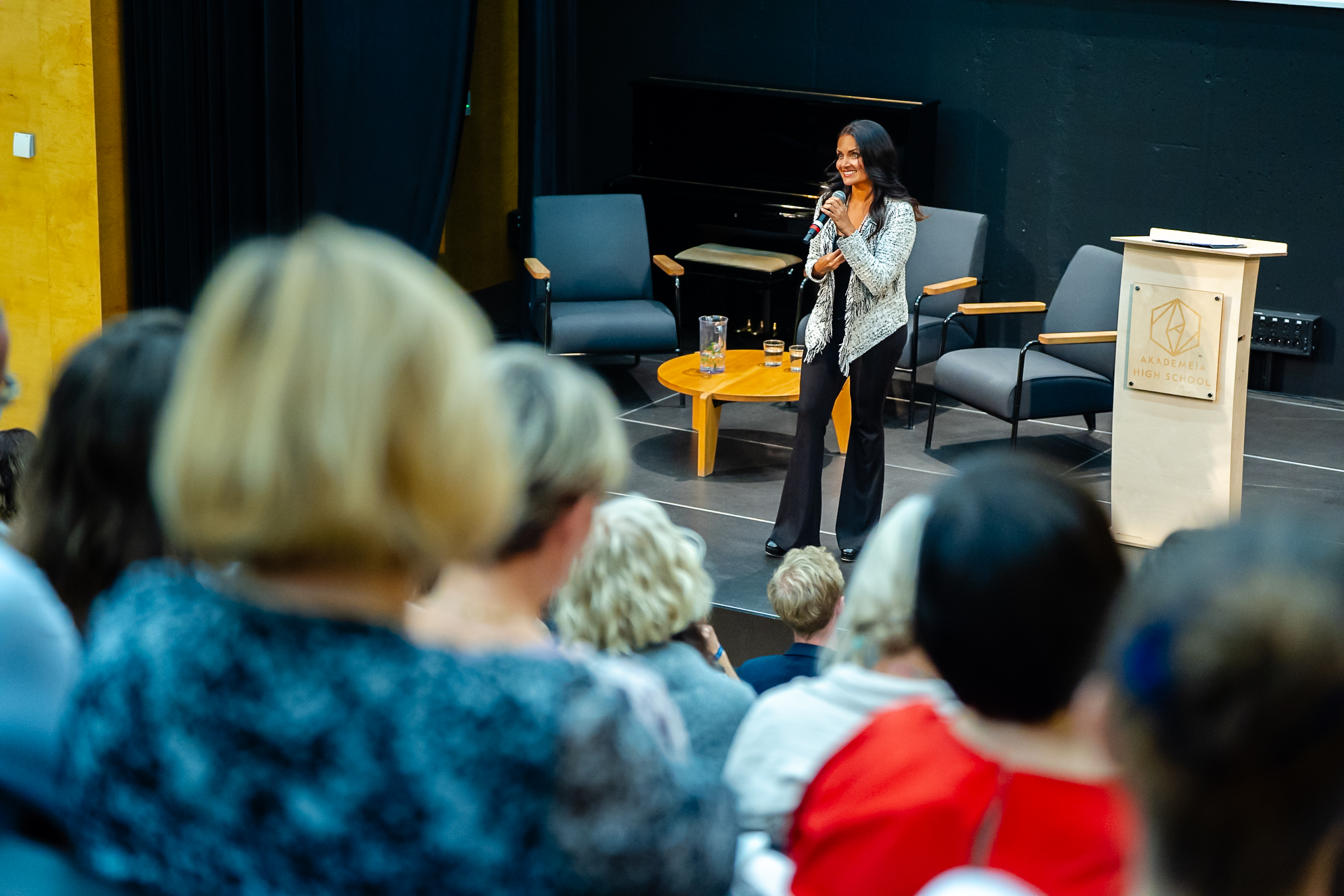
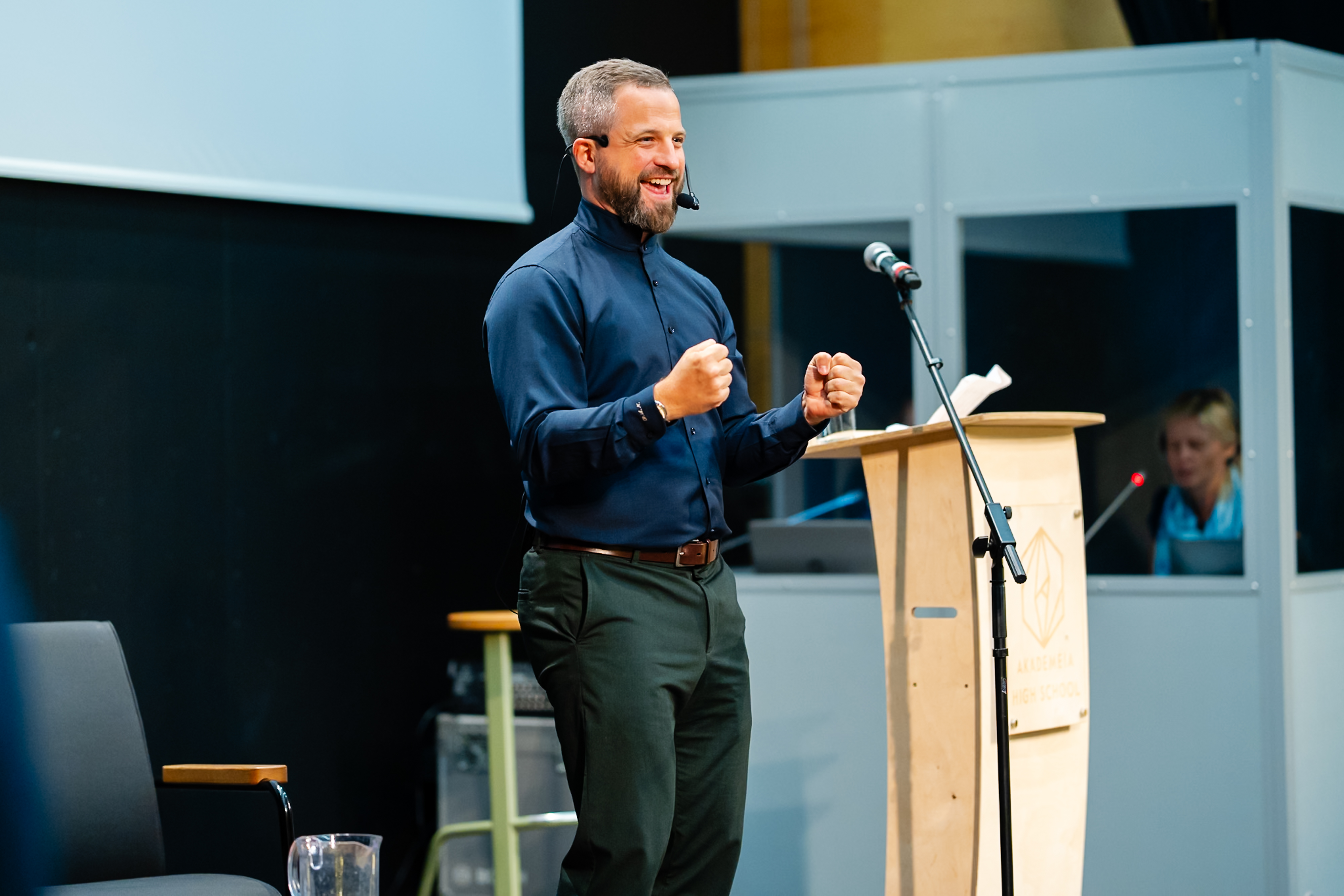
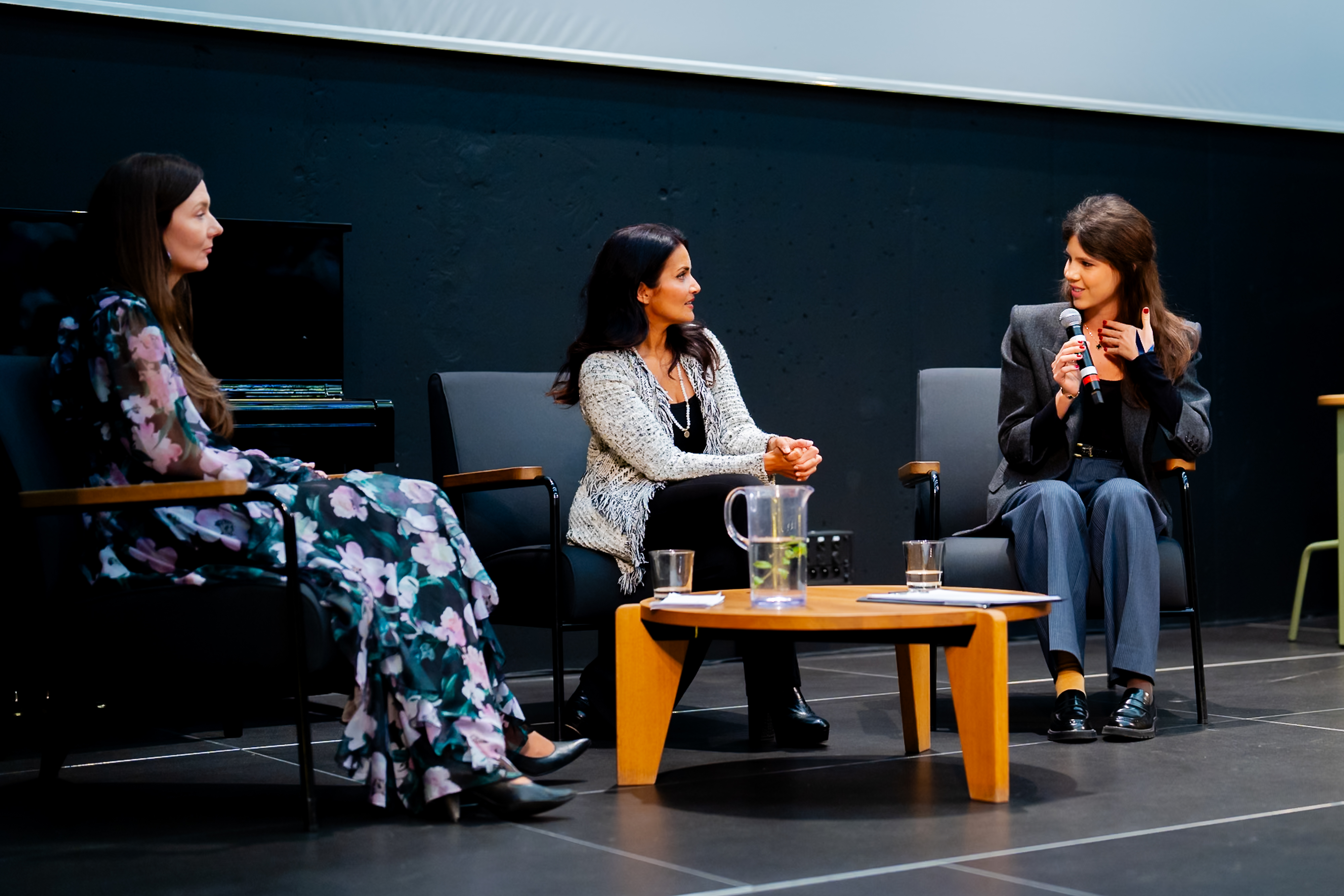
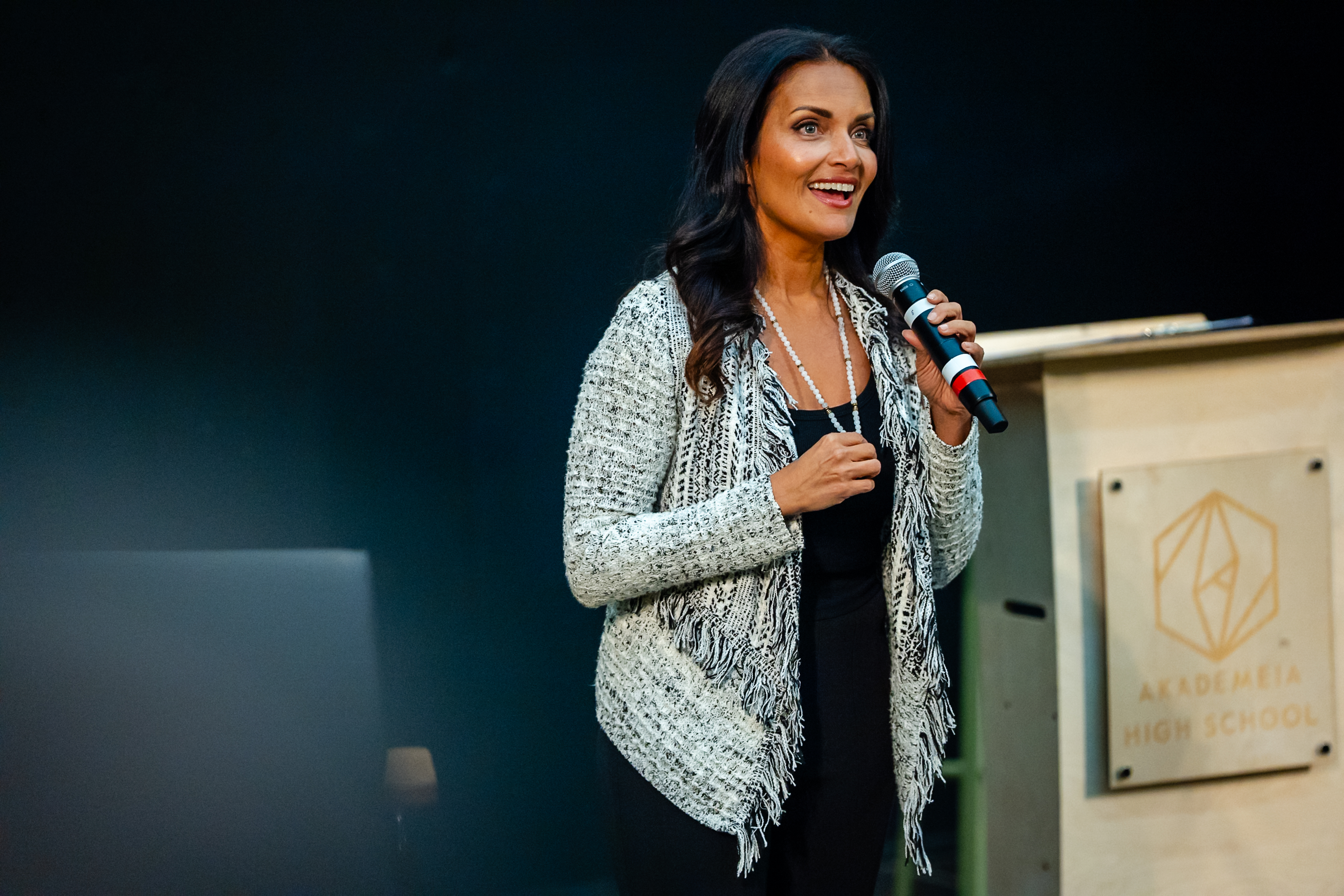
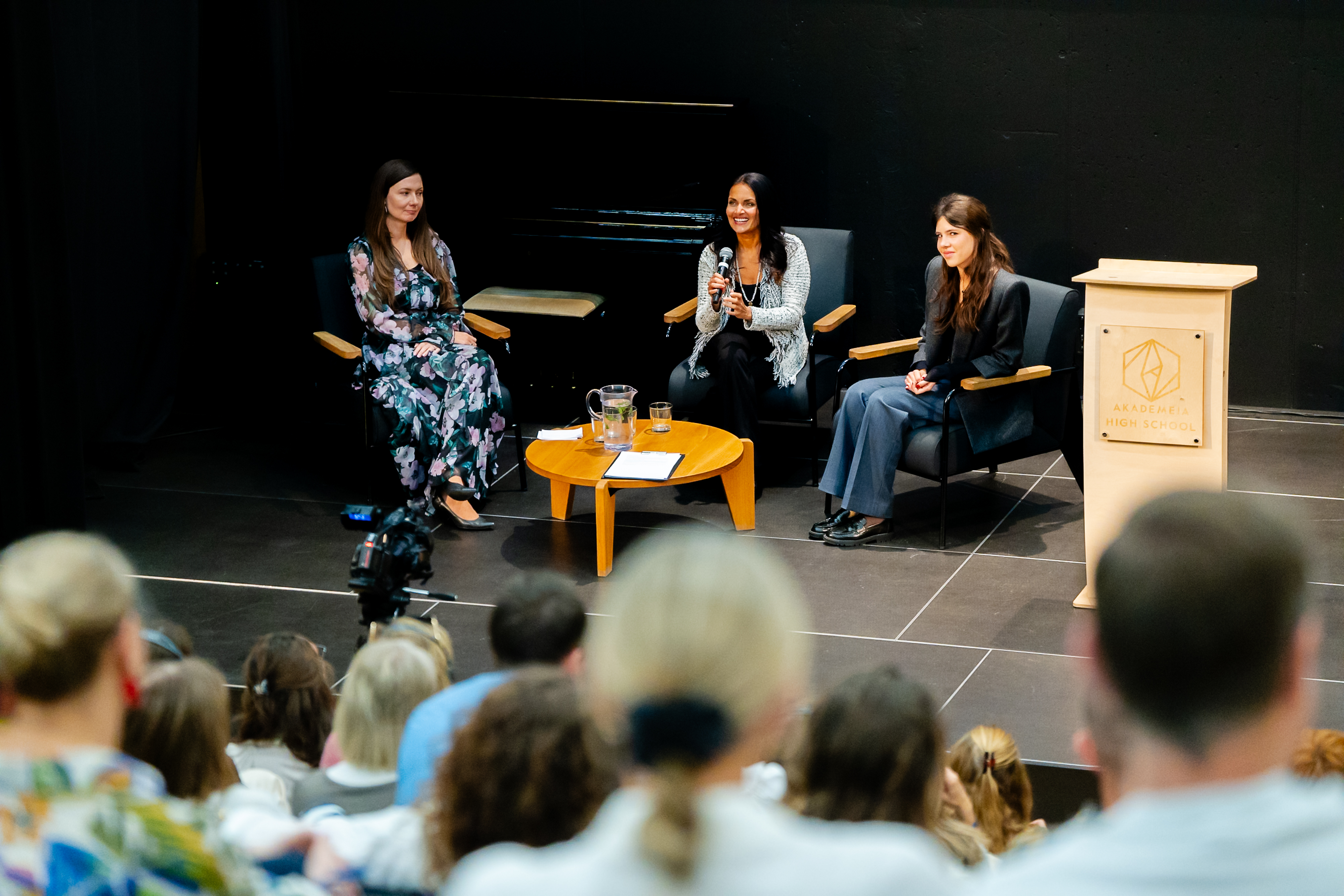
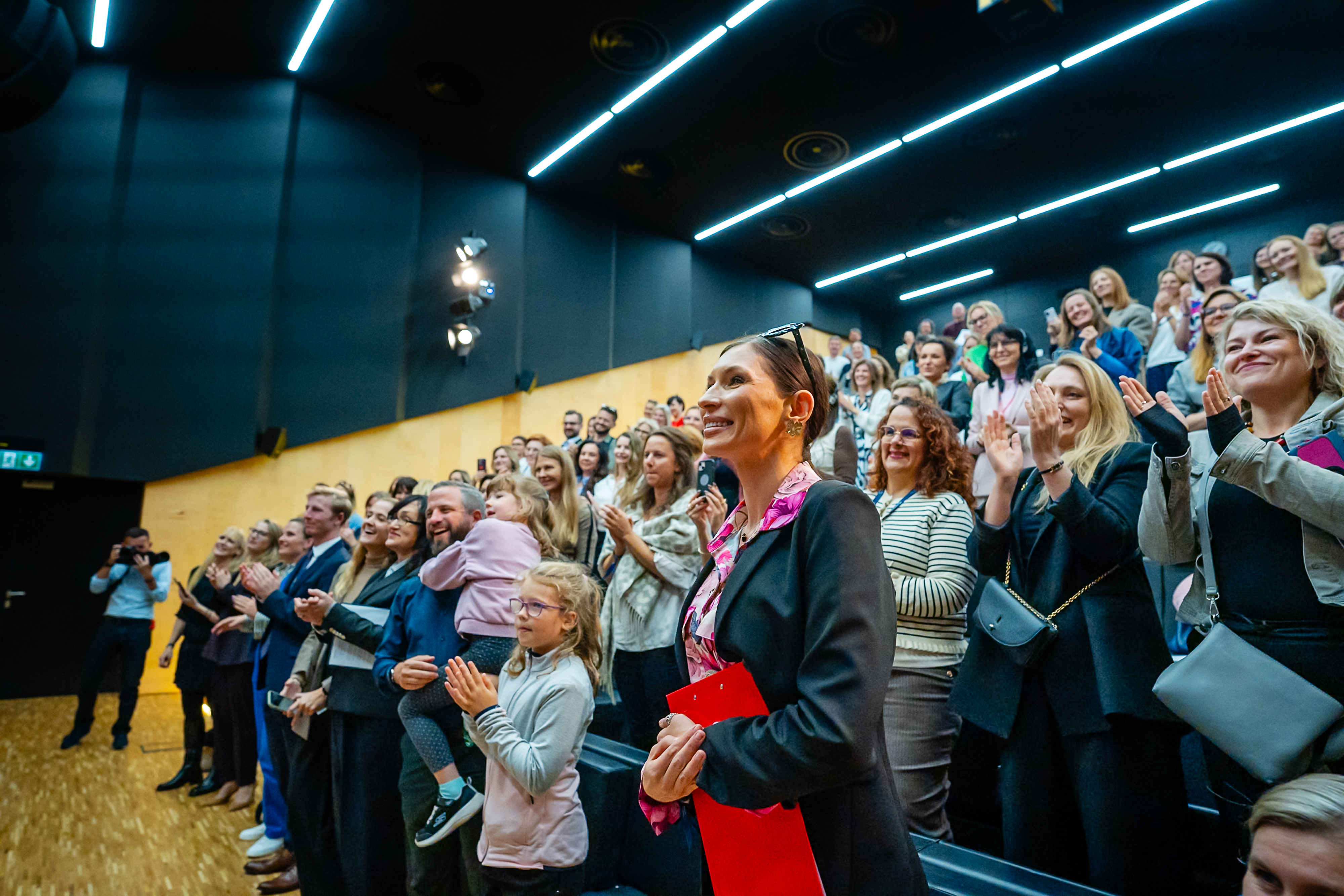
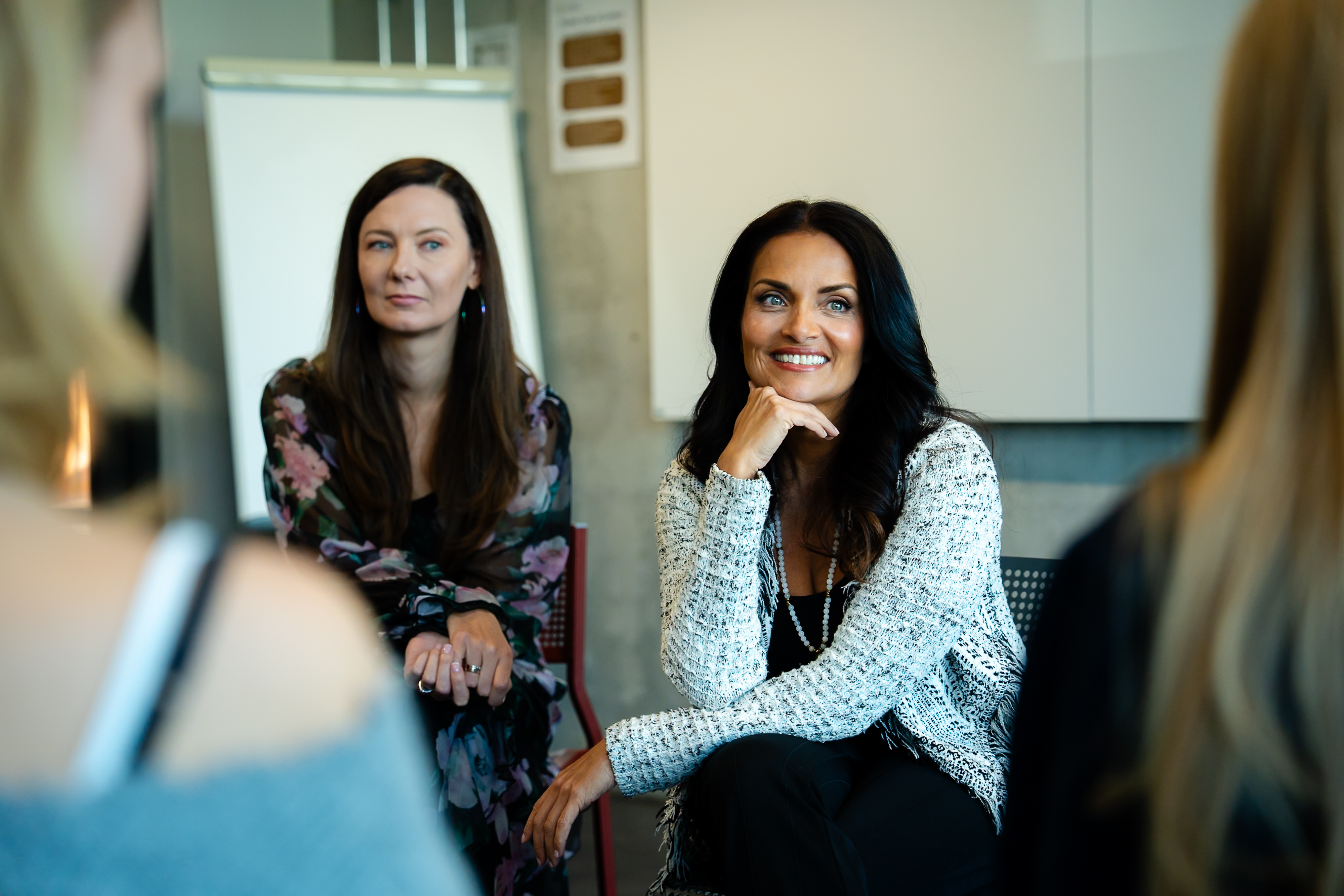
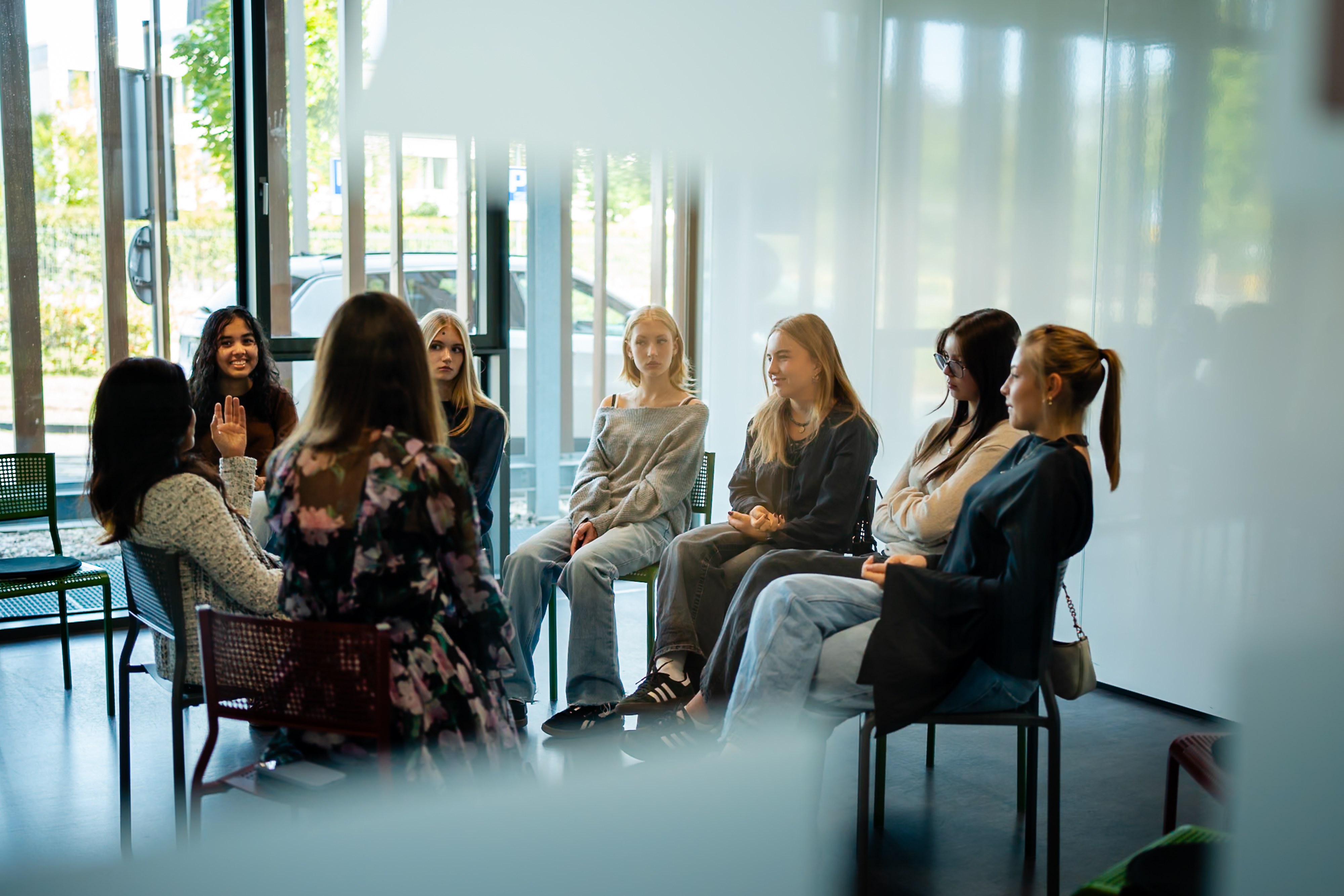
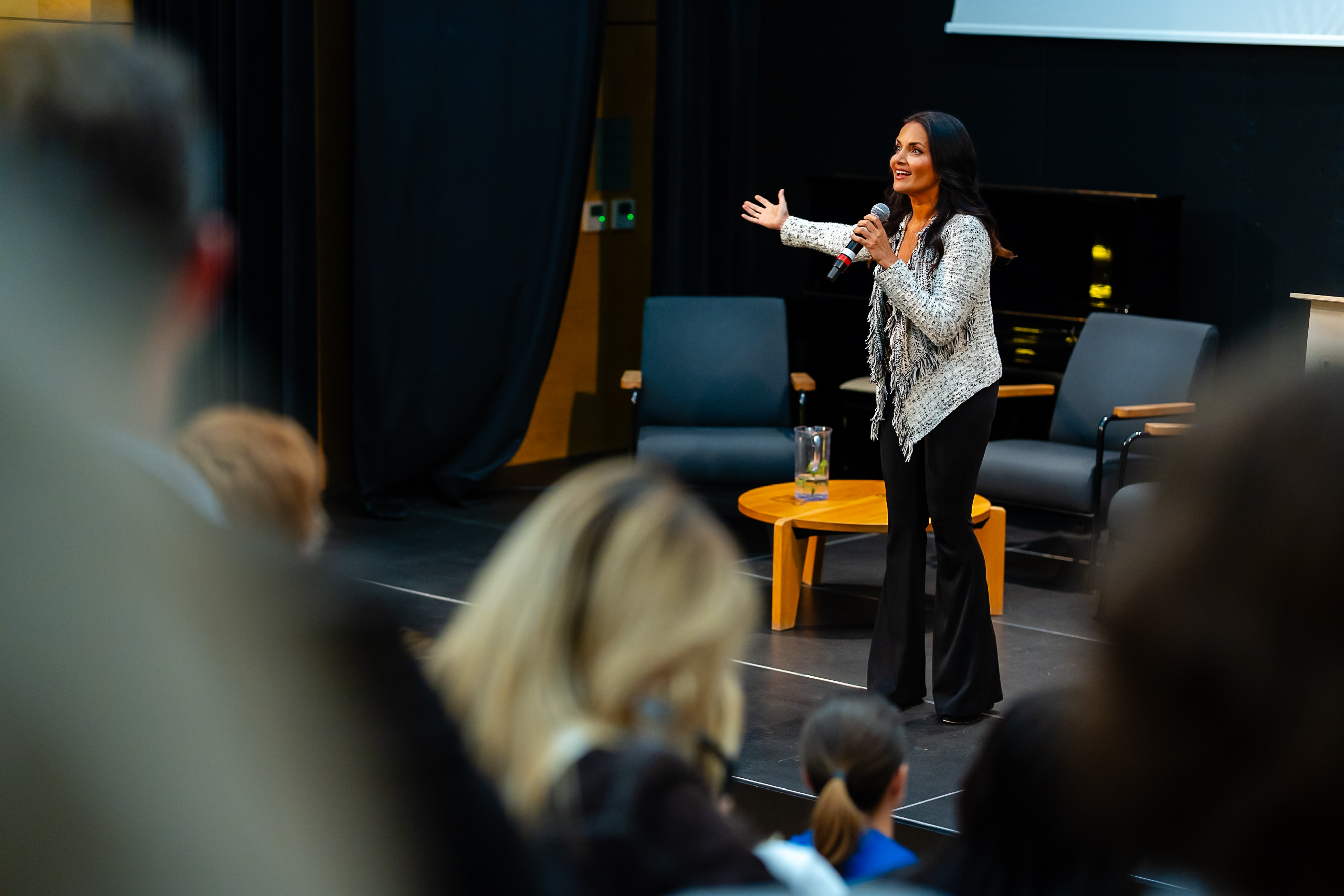
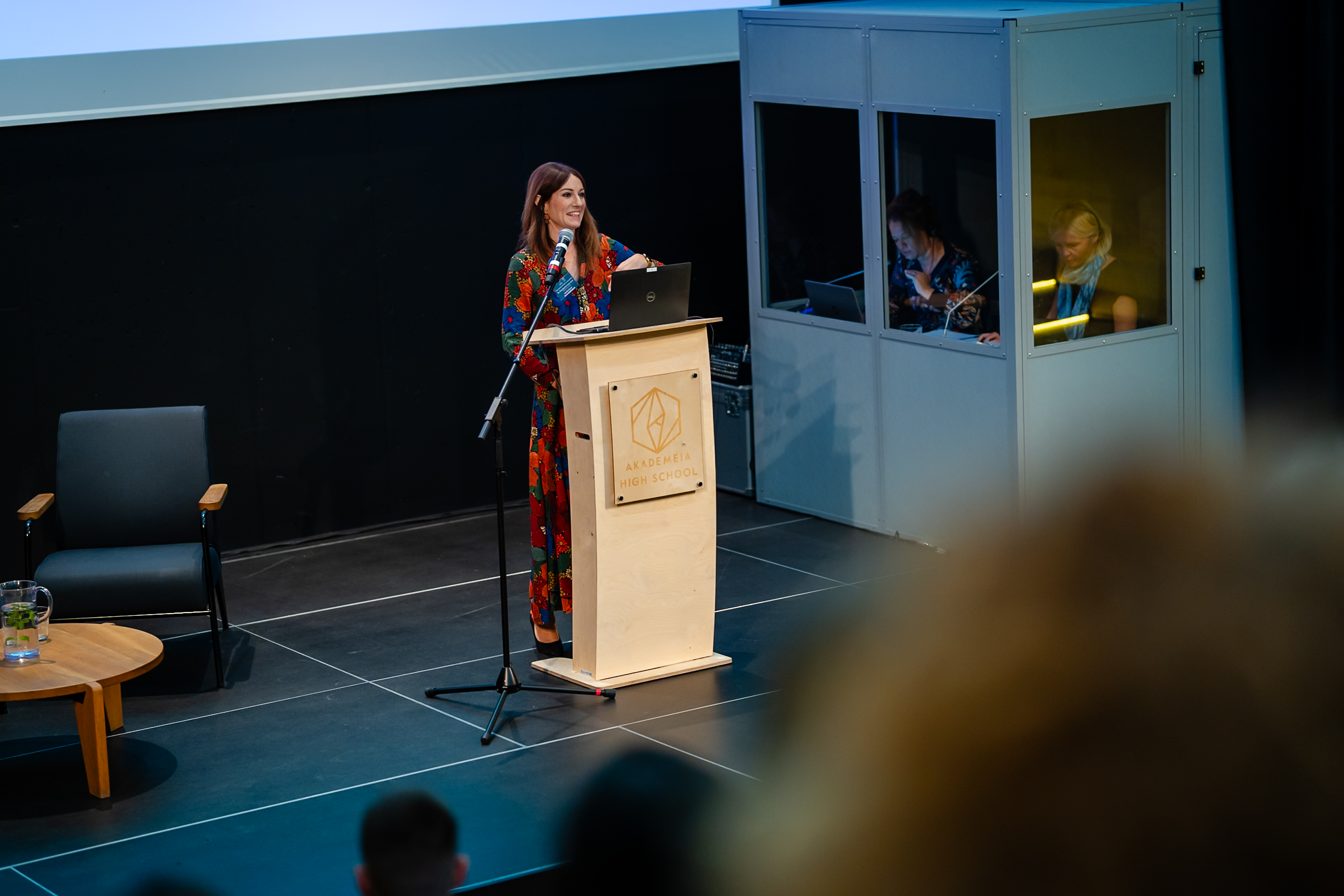
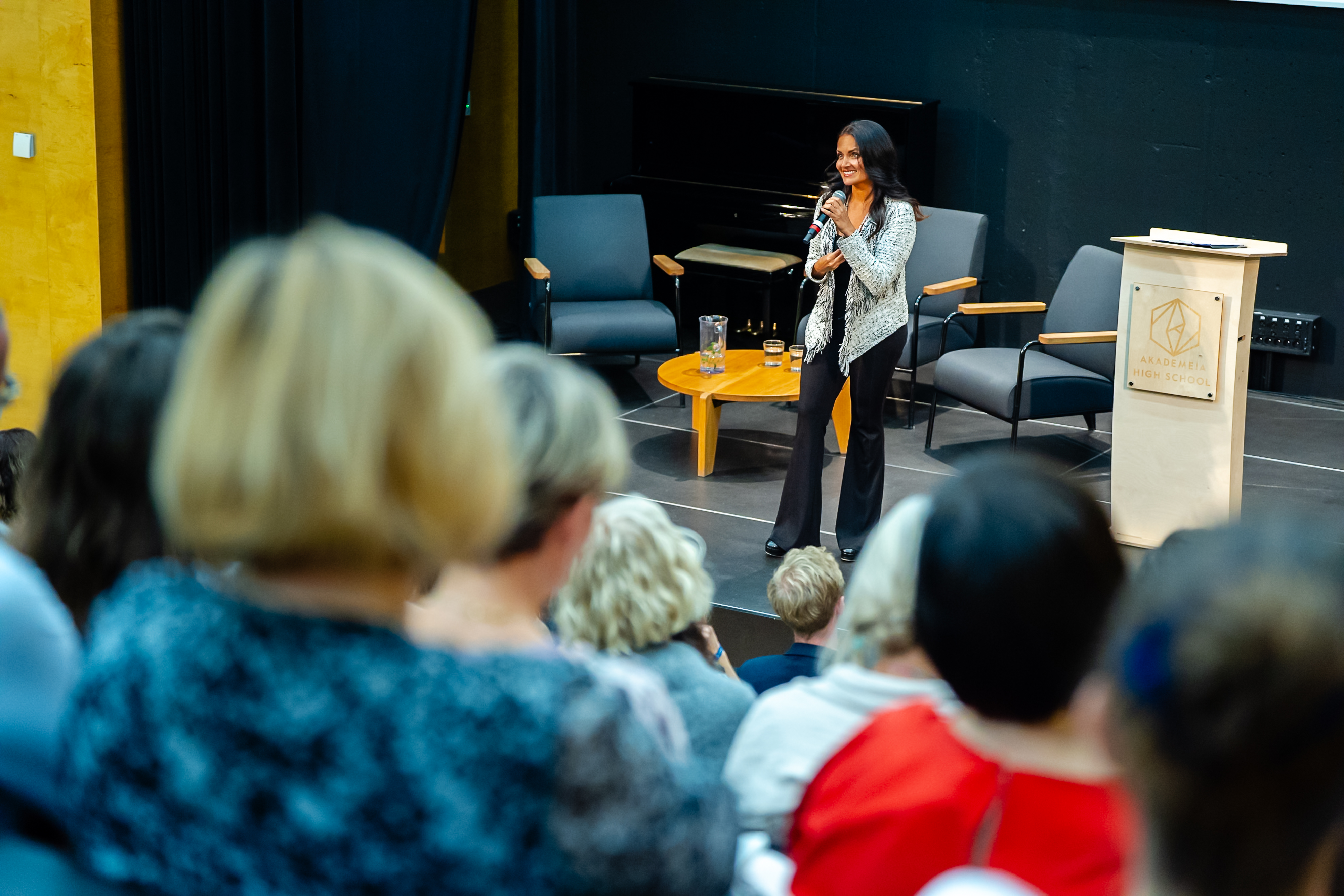
Akademeia High School proudly hosted an unforgettable event, the “A Revolution in Family Relationships” Conference, bringing world-renowned voices in psychology and conscious parenting to Warsaw.
The highlight of the day was Dr Shefali Tsabary, acclaimed clinical psychologist, bestselling author, and international speaker, who, for the very first time in Poland, shared her pioneering approach to conscious parenting. Blending Western psychology with Eastern mindfulness, Dr Shefali inspired parents and educators to move beyond the pressure of perfection and instead cultivate relationships grounded in authenticity, presence, and healing.
In addition to her keynote, Dr Shefali led a special workshop with Akademeia students, engaging directly with the young minds of tomorrow. Together, they explored their hopes and concerns, creating space for open dialogue and reflection about the challenges of growing up in today’s world.
We also had the privilege of hearing from:
🔹 Dr Ewa Jarczewska-Gerc, SWPS University, on “Emotional Regulation and Its Crucial Role in Building Human Wellbeing”
🔹 Patrick Ney, Lead Trainer at All About Parenting, on discovering “The Secret Needs of Your Family”
The conference, co-organised by Magdalena Wiatrowska - Family Power Institute, Poland’s first Conscious Parenting coach, created a truly unique space for reflection, dialogue, and meaningful connection between generations.
A heartfelt thank you to our media partners wysokieobcasy and Newsweek Psychologia for their support, to our inspiring speakers, and to all the families and guests who joined us in this special journey.
This was more than a conference, it was a movement toward healthier, more conscious family relationships.
Awakening the Parent
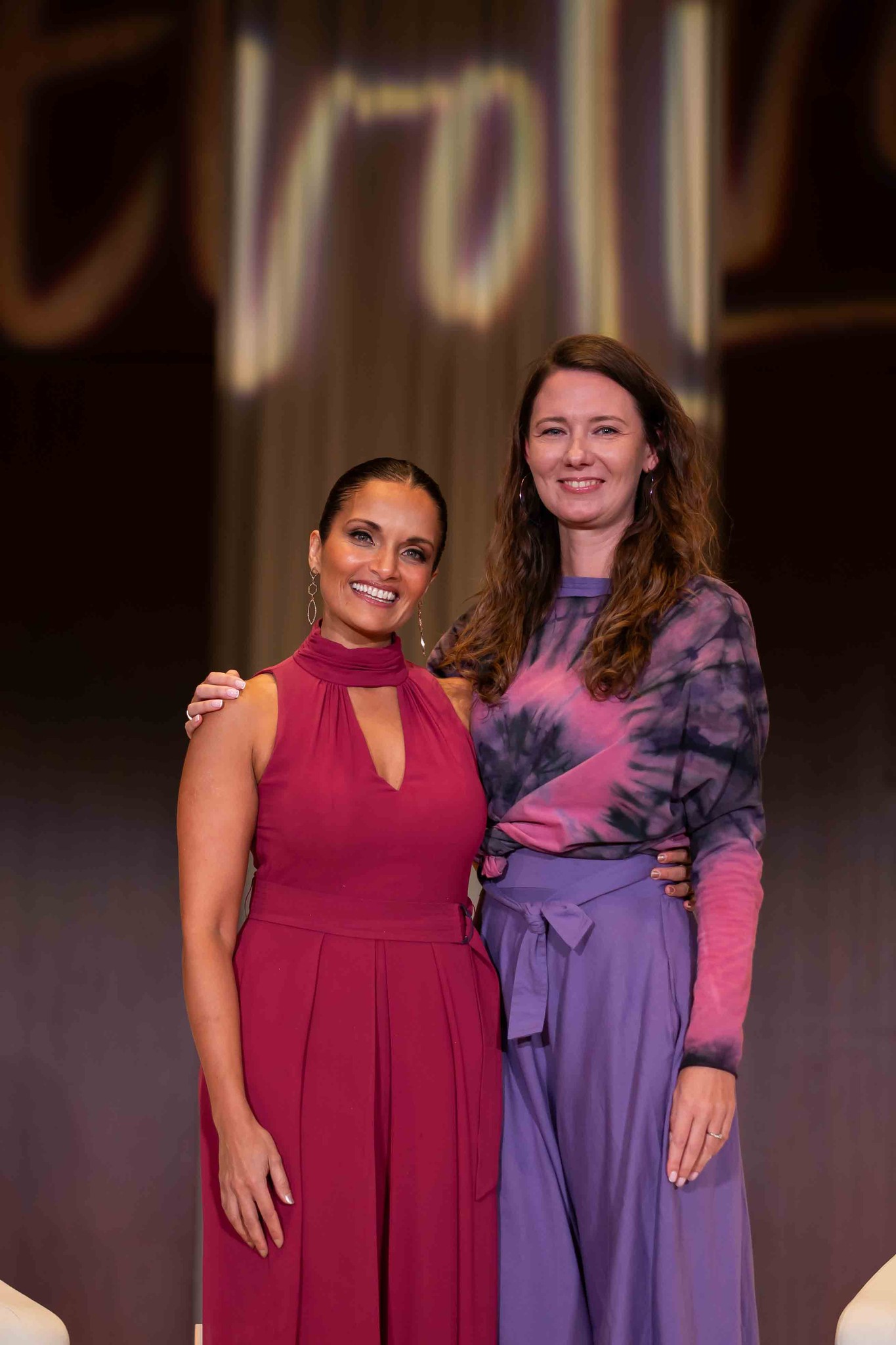 “Today’s parenting is hyper-vigilant, hyper-ambitious, driven by fear and pressure. It creates deep anxiety in children — the feeling that no matter what they do, it will never be enough. What if, instead of trying to ‘fix the children,’ we focused on building our own parental self-awareness?” — says Dr Shefali Tsabary, internationally renowned clinical psychologist and New York Times bestselling author.
“Today’s parenting is hyper-vigilant, hyper-ambitious, driven by fear and pressure. It creates deep anxiety in children — the feeling that no matter what they do, it will never be enough. What if, instead of trying to ‘fix the children,’ we focused on building our own parental self-awareness?” — says Dr Shefali Tsabary, internationally renowned clinical psychologist and New York Times bestselling author.
Interview with Magdalena Wiatrowska, Family Power Institute for Conscious Parenting
Magdalena Wiatrowska: How does the traditional model of parenting differ from the one you propose to parents?
Dr Shefali Tsabary: In the traditional model, the child is seen as someone who needs correction, change, or repair. Conscious parenting flips this: the parent must become the focus, seeking to understand how their inner workings impact the child. It’s a symbiotic process where both learn from each other. The child is as much a teacher as the parent. Children’s behaviours reflect our unexpressed emotions, hidden fears, desires, and the parts of ourselves we never fully got to know or develop. Through this relationship, we get a chance to see what parts of ourselves are waiting to be healed. Every difficulty with a child is an invitation for deeper self-understanding.
MW: When did you realise that the parent should be at the centre of this transformation?
ST: I too initially focused mostly on the child. For decades, I worked with families and observed how even the most loving, committed, and organised parents — in stable relationships and good lives — struggled to form true, conscious bonds with themselves and their children. They met all society’s criteria for ‘ideal’ parents, yet remained frustrated, lost, unhappy. I began to wonder, “Why do parents who do everything ‘right’ fail to connect with their children? Why are they anxious, tired, overwhelmed — even when everything on the surface seems fine?” I realised the root of the issue lies not in the child but in the parent — their unconscious wounds from the past. Parents often don’t realise that their own emotional scars are the biggest barrier to deep connection. When I turned my focus and work inward, that’s when everything began to change. That was the breakthrough moment.
MW: How did this shift influence your own parenting?
ST: I believed that with my years of meditation practice and three Master’s degrees in psychology, plus clinical psychology doctoral studies underway, I would be the ‘perfect’ mother. But when my child was born, I saw that each of us is entrusted with raising a unique, wholly new being — not the idealised child I had imagined. I started to notice how much my expectations and needs affected my child. I realised that if I didn’t change, I could crush my daughter’s spirit. It was a painful discovery: I had projected all my unmet desires onto her, trying to control her to fit my vision of who she ‘should’ be, instead of allowing her to be who she truly is. This transformed my approach to parenting. To be a conscious mother, I first had to heal myself.
MW: You argue that conscious parenting is especially needed today. Why?
ST: It has always been important, but previous generations — our parents and grandparents — were largely unaware. I sometimes call them “gentle neglectful parents,” or at times “severely neglectful,” but generally their parenting was unconsciously neglectful. Today’s parenting is a different story. It is hyper-vigilant, hyper-ambitious, driven by fear and pressure. I call it “parenting on steroids.” It creates immense anxiety in modern children who grow up feeling they are never quite enough. Parents, caught in constant productivity mode, send children an unconscious message: “No matter who you are or what you do, you will never be good enough.” This unconsciousness is widespread and leads to very unhealthy emotional development.
ST (continued): On top of that, modern technology further disconnects us emotionally, automates relationships, and distances us from genuine contact. This loss of human connection is a serious threat. Children increasingly feel isolated and lacking belonging, deepening their sense of inadequacy. This often leads to self-harm, eating disorders, and technology addiction. Children compare their lives to the idealised images on social media — and feel even more ‘not enough,’ like something is always missing.
MW: How can we counter this?
ST: Until we break this cycle, children’s emotional health remains at risk. That’s why conscious parenting is so vital today. It teaches parents how to form authentic, individual connections with their children — not through control, but through presence and understanding.
We need to become aware of how vital it is to maintain a deep emotional bond with our child. This bond helps them build an internal sense of worth that is independent of external judgement. The conscious parent becomes a bridge between the chaotic outside world and the child’s tender inner world.
ST (continued): Our current education system doesn’t help — it is hierarchical, traditional, linear, and focused on external results. It rarely considers each child’s individual needs and, instead of supporting diversity, pushes conformity. It fosters the feeling of ‘not being enough.’ A conscious parent understands the limitations of the school system and recognises it doesn’t fully reflect their child’s identity or potential. Such a parent says, “Do your best — but you don’t need to be the best at everything.” Instead of fixating on results, they support the child’s engagement in the process, self-discovery, and relationships with others. Conscious parenting realises that true education starts with self-awareness. It helps the child ‘navigate’ the school world without pressure to meet unrealistic expectations, guiding them toward their passions, interests, and natural talents.
MW: Some parents wonder if conscious parenting is just a passing trend. Could you outline its core principles?
ST: The key principles of conscious parenting are awareness, awakening, freedom, and liberation. It’s about freeing ourselves from external expectations, stereotypes, and pressures telling us who we ‘should’ be — as parents and as people. It’s an invitation to turn inward and live more authentically.
When I talk about conscious parenting, I often meet resistance. Traditional parents ask, “So my child can play video games all day? Smoke marijuana? Destroy things?” They confuse conscious parenting with permissiveness. But it’s nothing like being permissive or lenient, nor about control or lack of boundaries. It’s a fundamentally different way of being a parent — where the child is not something to be moulded but a leader of their own path. The parent doesn’t impose but follows attentively, tuning into what the child communicates and truly needs. They adapt to the child’s temperament — not the other way around.
ST (continued): Some parents immediately think, “That’s just permissiveness.” In the traditional parenting paradigm, yes, it looks like permissiveness because we wait for the child to show the way, because we listen, because we stay open to what’s happening inside them. But conscious parenting isn’t about lacking boundaries. It’s about the parent being fully present, aware, and flexible — adjusting to the child’s needs, not their own expectations.
Traditional parenting plans the day in advance: “After school, we go play football, then watch a movie, then dinner.” A conscious parent doesn’t set rigid plans but stops, observes, listens, and asks: “What do you need right now? How can I support you?” Instead of imposing a script, they respond to what’s happening in the moment, tuning in and asking themselves: “Is what I want serving my child, or more myself?” When a child says, “I don’t want to go cycling today,” a conscious parent doesn’t take offence or exert pressure. They accept that cue.
This is not permissiveness — it is deeply listening to and responding to a child’s real needs. As a result, the child feels seen, and the parent builds a connection grounded in respect and presence rather than struggle.
MW: Can a parent expect the child, in return for this approach, to become highly conscious themselves?
ST: Many parents entering this path dream their child will become a little Dalai Lama, Mother Teresa, or at least an extremely empathetic and attentive being. But the goal of conscious parenting isn’t to ‘produce’ a conscious child — it’s the parent’s own awakening that matters. The parent must wake up and realise that when they change, everything around them changes. Not because of control, but because the energy and presence they bring transforms the relationship.
MW: Awakening is often imagined as a sudden, magical change — life becoming light and peaceful. What’s your take?
ST: Awakening carries a heavy price. It’s not a fairy tale about instant enlightenment. It’s a process beginning with pain — because we start to see things as they truly are. We notice how many people around us live in illusions — constant striving, acquisition, consumption, rushing, and tension. We see their confusion and unconsciousness and often want to run far away from it all. We feel like we no longer belong. We lose connection. We change — but others do not. Over time, though, comes the understanding: “We can be in the world but not of the world.” We can be present, engaged, full of life — while holding healthy distance from what is crazy, toxic, or inauthentic. That is possible. And that is what awakening brings.
MW: What does consciousness truly teach us?
ST: It teaches us how to be present in the world — without the need to react or judge. It is an inner liberation, the ability to be among people who may still live in illusions while we remain free. We see the illusion, but no longer need to flee it because we have broken mental chains. We are free — and that is the true power of awareness.
MW: What if my family is not awakened? What if, for example, my partner is not on the same path of change?
ST: This is very common. When we begin to awaken, we discover not everyone around us wants to change — and that can be hard to accept. We want to share and inspire those close to us — but see that they are not ready. Then, we must realise that it’s okay and accept this. Consciousness is not a competition or popularity contest. It’s a personal journey, and everyone has their own moment of awakening.
Interview originally conducted for Newsweek Psychologia Dziecka. Published with editorial consent.
About the interviewer:
Magdalena Wiatrowska is Poland’s first Certified Conscious Parenting Coach accredited by Dr Shefali Tsabary and consultant for the Polish edition of The Perfect Parent Does Not Exist. She holds degrees in special education and social rehabilitation and leads the Family Power Institute for Conscious Parenting.
Conscious Parenting. Without the Mask
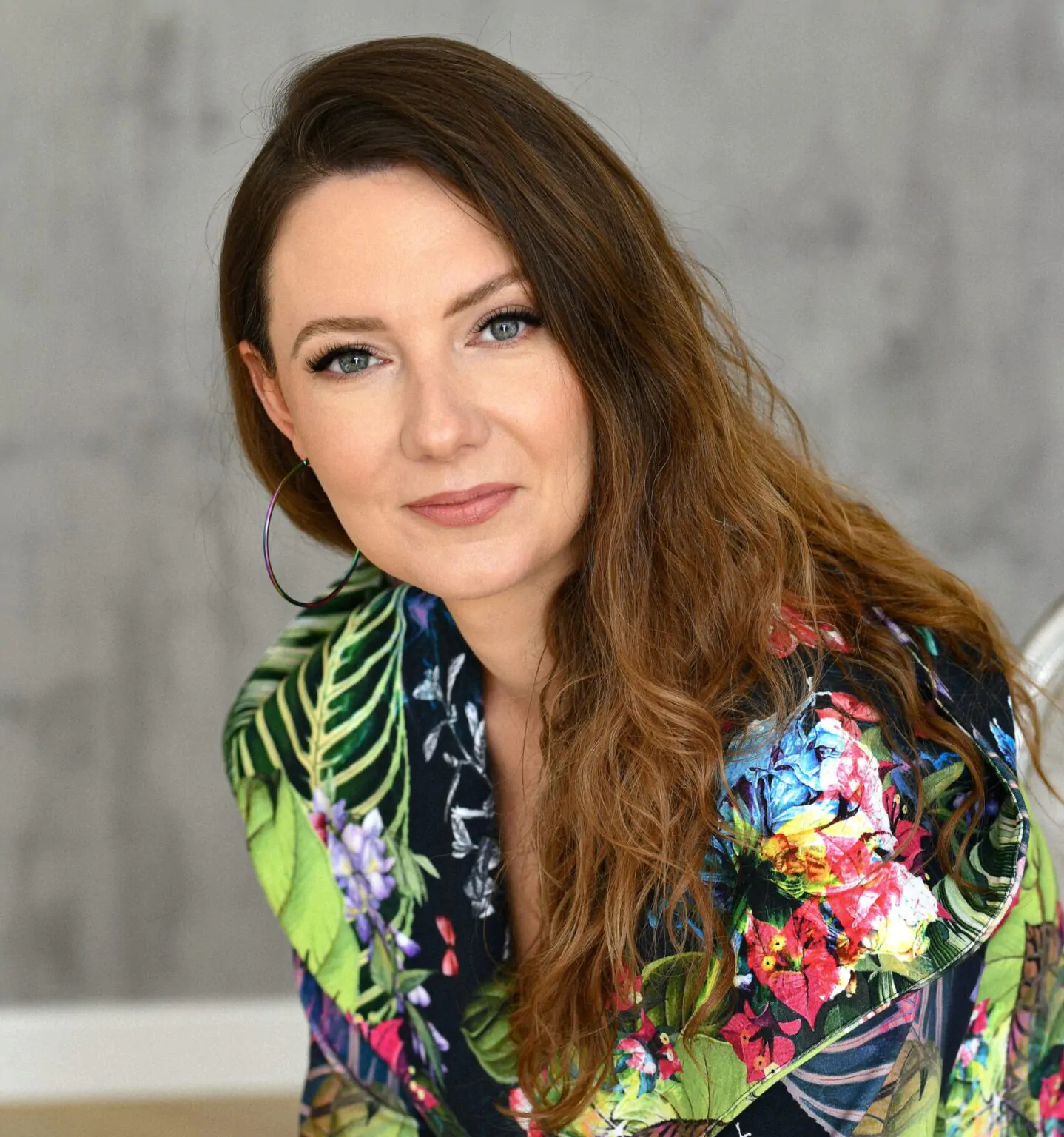 Tension in the parent-teen relationship is a common experience. We often blame emotional ups and downs, rebellion, or generational differences. But what if, to truly connect, we first looked deeply within ourselves, recognised our parental mask, and chose to take it off?
Tension in the parent-teen relationship is a common experience. We often blame emotional ups and downs, rebellion, or generational differences. But what if, to truly connect, we first looked deeply within ourselves, recognised our parental mask, and chose to take it off?
— Magdalena Wiatrowska, Family Power Institute for Conscious Parenting
Our children spend most of their time outside the home or immersed in virtual worlds. Their rooms are often in a perpetual state of disorder. We’re unsure how they are really doing at school, even if they assure us “it’s not that bad.” Meanwhile, we hesitate to check the electronic diary. On top of all that, we face constant under-the-breath remarks or direct complaints: “The parents are always nagging and finding fault.” It’s a challenging time.
The Root of the Problem
Many parents already live this experience; many more fear its arrival. Generational gaps, communication breakdowns, emotional whiplash. Too often, we see our children through a lens of fear, irony, misunderstanding, and deep disappointment. Yet, it’s valuable to explore the root causes of this state — by turning inward. When we were teenagers, how did we see the world? Were our parents understanding and open, or otherwise? Could we truly talk to them, or were expectations all that was offered? What was the atmosphere at home? Did we want to come back, feeling accepted and heard?
Adolescence is a time when identity forms, the sense of “I” emerges. Teens have a radar for hypocrisy. They see it everywhere, and it fuels their rebellion and resistance. This rebellious energy is an important part of their growth.
When forming their identity, teens decide whether to mirror their parents’ way of life — if it feels right, they emulate it; if not, they resist it, often loudly. This rebellion, when understood consciously and compassionately by parents, reveals much about ourselves — our own insecurities, hypocrisies, fears, and desires for control. Conscious parenting becomes a mirror for the parent. Unlike other relationships, we cannot walk away from our children. They stay.
What hurts or frustrates us reflects our own reactive patterns. Questions like: “What if my child speaks to me disrespectfully? How should I react? Should I ease up if they’re struggling at school? Should I just let it go?” arise frequently. Our responses differ greatly, shaped by conscious or unconscious beliefs about parenting — beliefs that guide our behaviour and reactions.
Masks and Patterns
Dr Shefali says, “We live patterns, not life.” What does that really mean? Dr Shefali Tsabary is a clinical psychologist specialising in family therapy and personal growth. She is Oprah Winfrey’s trusted parenting expert and creator of Conscious Parenting. Combining psychology, philosophy, and Eastern spiritual practices, she offers a refreshing perspective on raising children. She is the author of several New York Times bestsellers such as The Conscious Parent and The Awakened Family. In her latest book, The Perfect Parent Does Not Exist – The Conscious Parenting Map, she explores how different parental masks influence our relationships with our children, and how we can understand and integrate them to build healthier family bonds.
Why might embracing our masks help us? Each parent wears masks that help us cope with parenting challenges but simultaneously separate us from our children’s true needs. These masks often stem from our own childhood experiences when we didn’t feel fully accepted, safe, or unconditionally loved. Understanding them is the first step toward conscious parenting.
Here are a few common masks:
The Perfectionist Mask
This parent strives for perfection in the home, child, and relationships. They feel intense pressure to meet societal expectations and demand excellence from their child. This often arises from unresolved beliefs, such as “I am not enough.” The child feels burdened with unrealistic expectations, which can result in low self-esteem and fear of failure. Dr Shefali reminds us: “Our children don’t need perfect parents. They need real parents — authentic and open to their feelings and needs.”
The Controller Mask
Often worn by parents who experienced a lack of control in their own childhood. They seek to dominate every aspect of their child’s life—from daily routines to friendships. This behaviour attempts to secure safety but suppresses the child’s individuality. Says Dr Shefali: “We control because we fear that without it, our lives and those of our children will fall apart. It’s how we handle our fear of the unknown.”
The Superhero Mask
Adopted by parents who feel responsible for solving everything in their child’s life. They prevent their child from learning through experience and developing independence. Though protective, it ultimately hinders the child’s growth. Dr Shefali comments: “We cannot shield our children from life. We must allow them to fall so they can learn how to rise.”
Which Mask Do You Wear?
Every parent wears certain masks and patterns shaping their parenting style. Recognising our mask—and understanding its origin—is the first step to uncovering the fears and insecurities behind our reactions. It’s also the first step toward deeper, authentic connection with our children.
When we remove these masks, we open ourselves to genuine encounters — even with ourselves. Parenting is an ongoing journey of self-work and a unique opportunity for profound transformation. When we begin to see our children as mirrors reflecting our own anxieties and doubts, we can respond with more consciousness and love.
Children don’t need perfect parents. They need parents willing to evolve, so they can fully accept and support them.
Steps Toward Conscious Parenting:
- Notice your reactions: When strong emotions arise, reflect on what past beliefs or experiences may be triggering them.
- Accept your feelings: Don’t fight your emotions. Allow them as part of your human nature and seek to understand what they are telling you.
- Communicate with your child: Share your feelings openly without blaming. For example, “I feel worried when I see you haven’t done your homework. It’s part of your responsibilities. How can we work on this together?”
- Forgive yourself: Remember, parenting is one of the hardest roles. Be gentle with yourself, accept mistakes, and learn from them. Self-forgiveness is key to healing your relationship with your child.
Article originally written for Newsweek Psychologia Nastolatka, with editorial consent.
About the author:
Magdalena Wiatrowska is Poland’s first Certified Conscious Parenting Coach accredited by Dr Shefali Tsabary, and consultant for the Polish edition of The Perfect Parent Does Not Exist. Trained as a specialist in special education and social rehabilitation, she leads the Family Power Institute for Conscious Parenting.
"Godmother of Silicon Valley" Esther Wojcicki
The Akademeia community welcomed Esther Wojcicki, a pioneer in education and journalism, for an inspiring day of discussions, interviews, and seminars. Our student journalists from The Akademeia Post shared their work with her, receiving valuable feedback and insights (check out the interview here. Drawing on over 30 years of experience, Ms Wojcicki spoke about her TRICK philosophy (Trust, Respect, Independence, Collaboration, Kindness), the power of creativity in education, and her journey building one of the world’s leading high school journalism programs. The event sparked lively conversations and left a lasting impression on both students and staff.
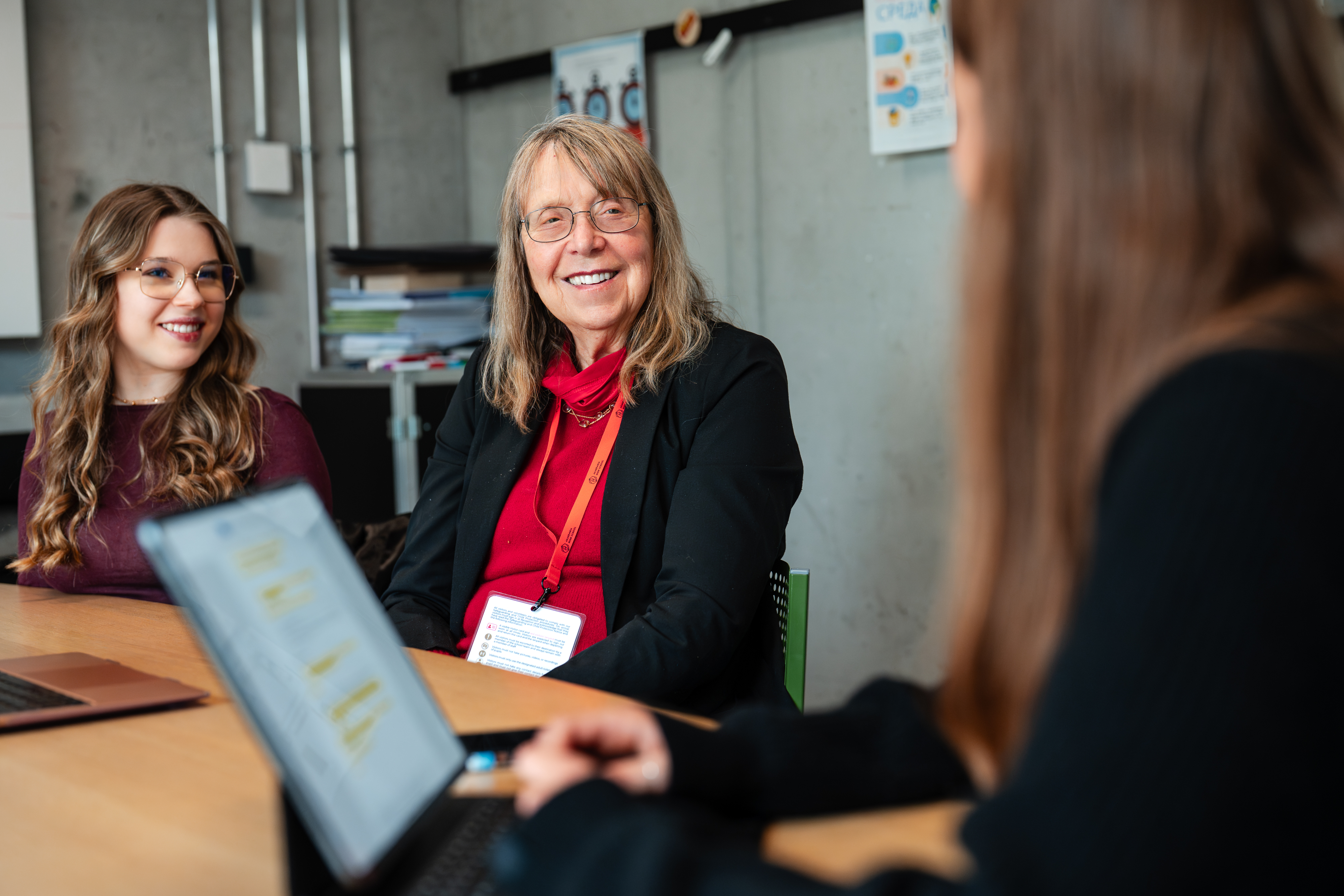
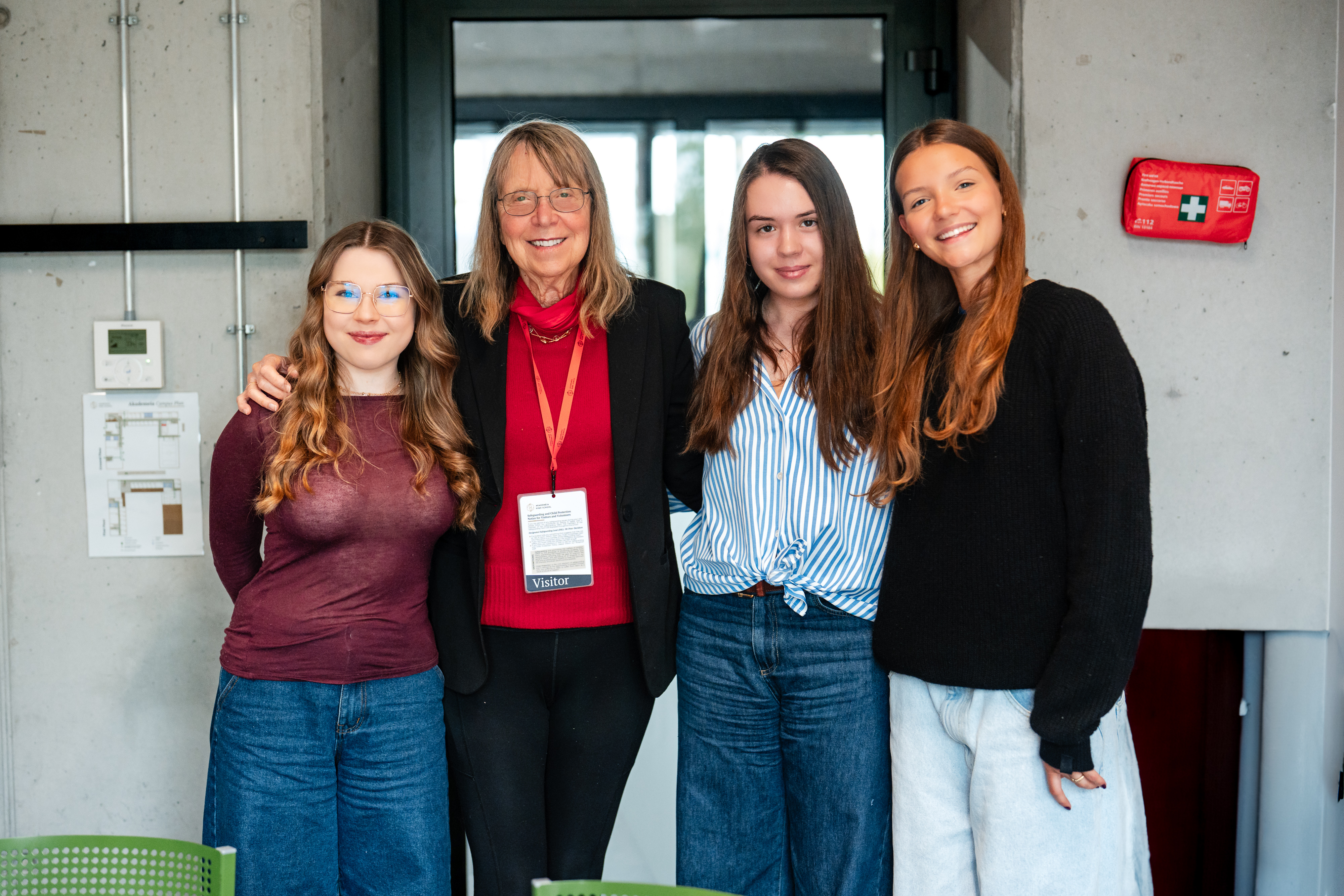
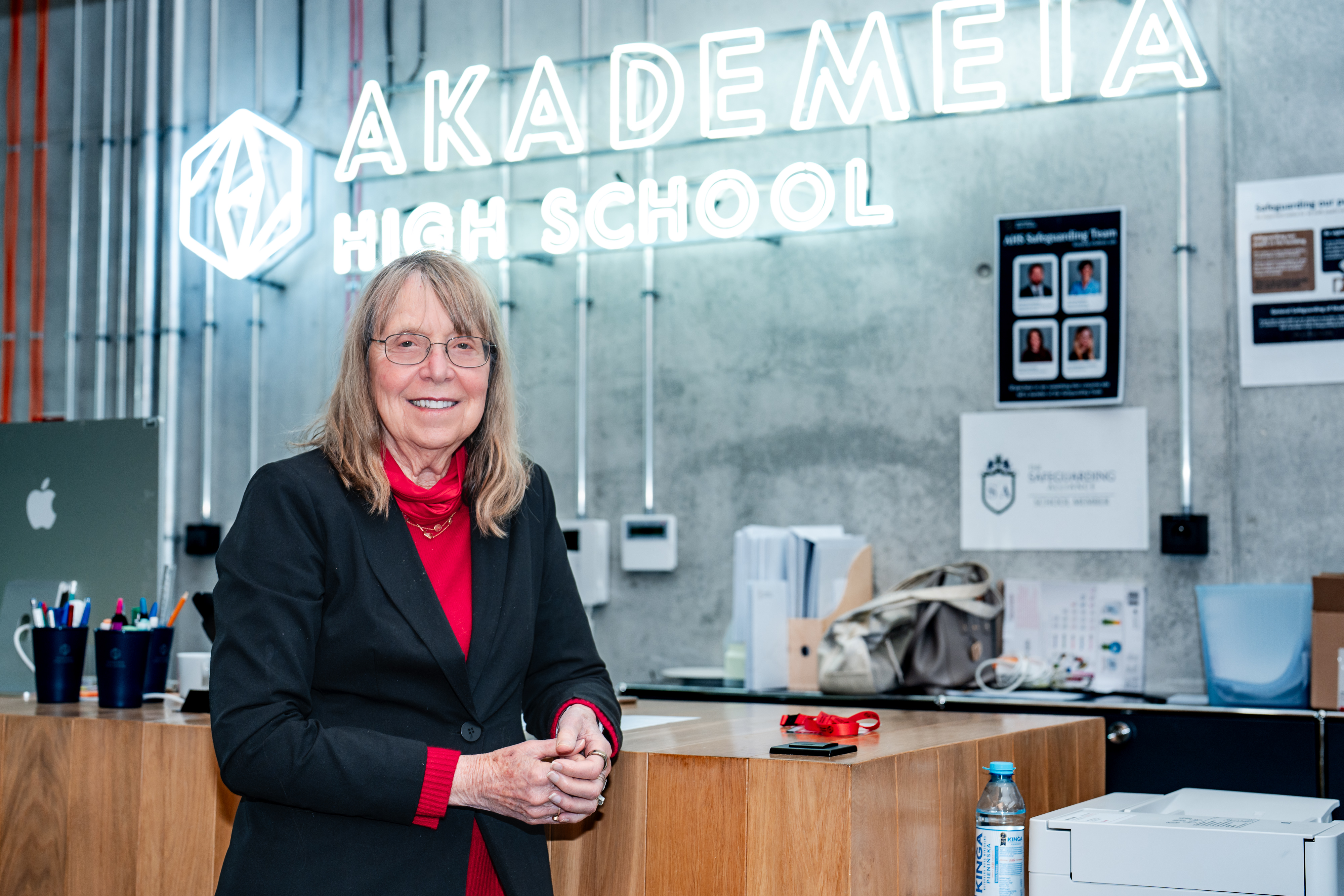
.jpg)
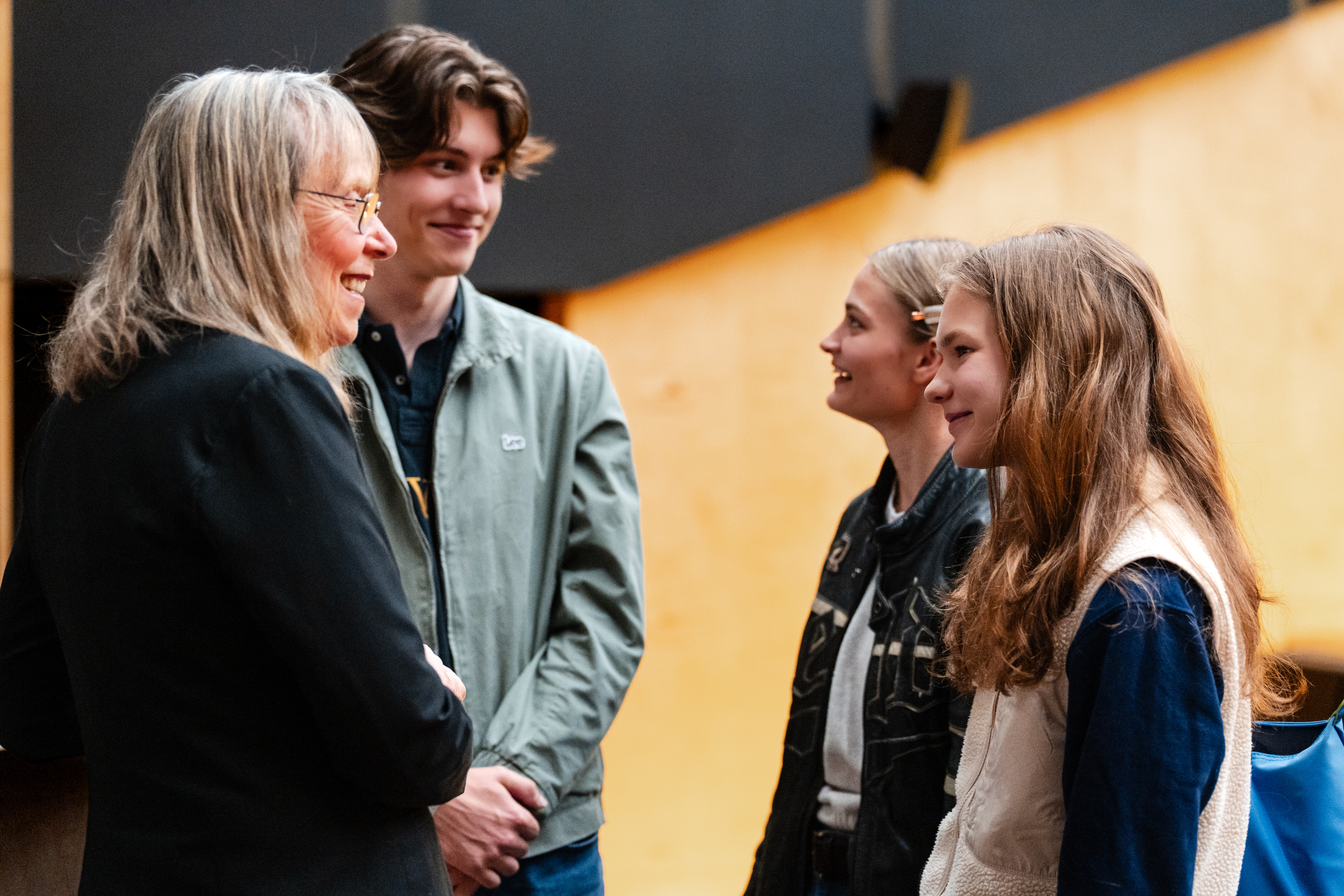
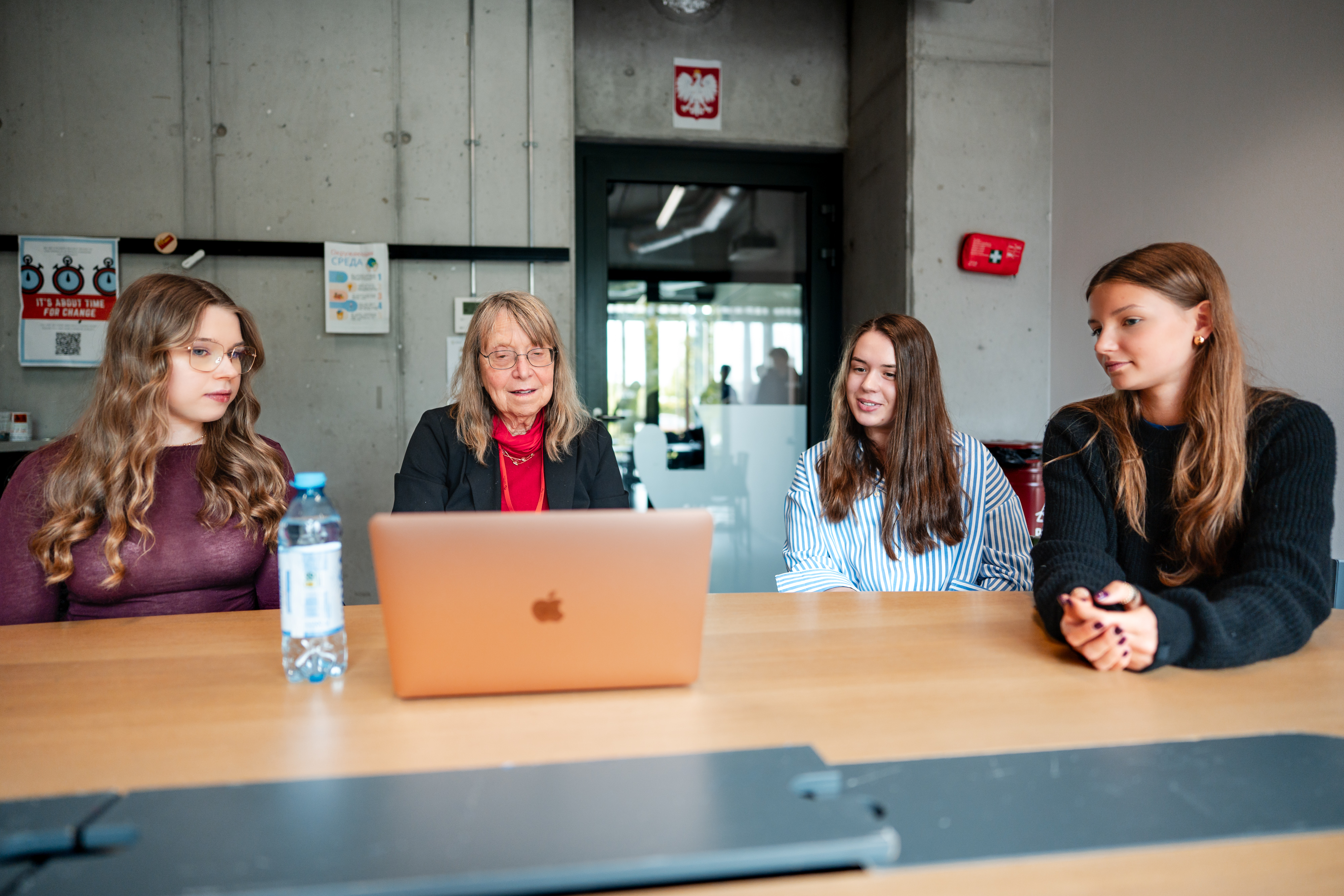
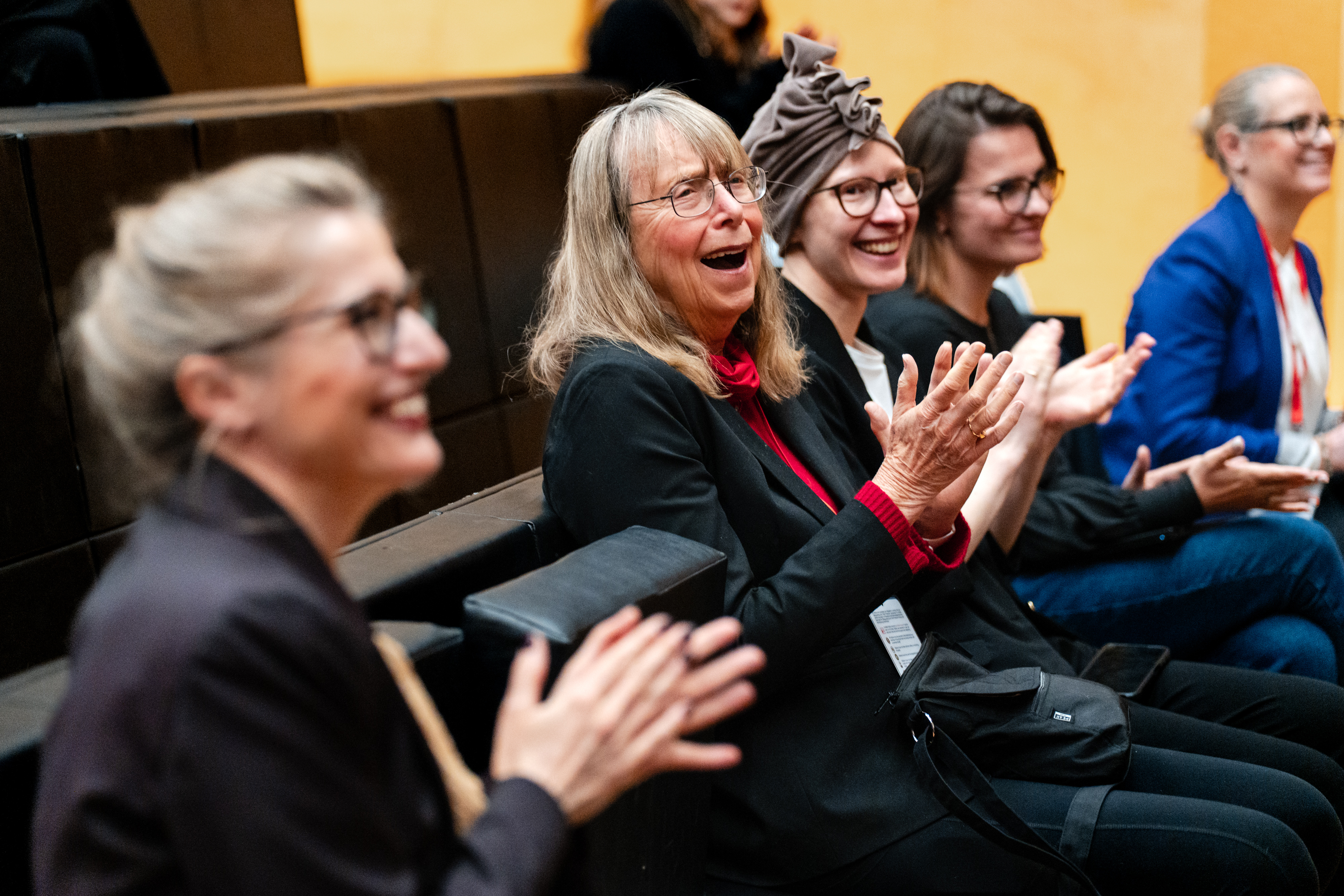


More in... School Community




